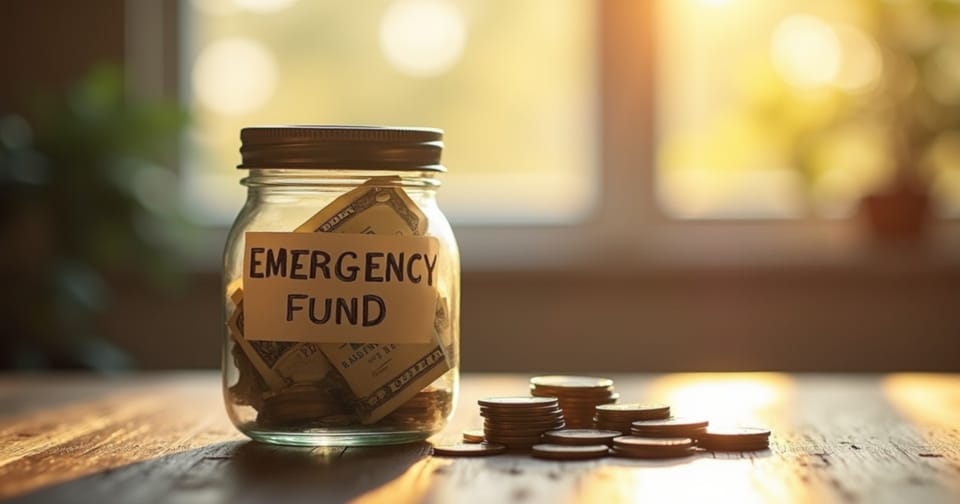The Importance of Emergency Funds: Your Financial Safety Net

A financial cushion today is peace of mind tomorrow.
🚨 Why You Need an Emergency Fund More Than Ever
Imagine this: Your car breaks down unexpectedly. Your employer announces layoffs. A medical bill lands in your inbox, bigger than expected.
What do all these situations have in common? They happen without warning. And if you’re not financially prepared, they can throw your entire budget into chaos.
Enter the emergency fund—your personal financial shock absorber. In a world of uncertainty, having cash set aside for the unexpected isn’t just smart—it’s essential. Without one, even small disruptions can snowball into significant financial setbacks, leading to unnecessary stress and long-term money struggles.
Let’s break down why an emergency fund matters, how much you need, and the best strategies to build one efficiently.
🛡️ Why Emergency Funds Matter
Unexpected expenses are one of the top reasons people fall into debt. Without savings, many turn to credit cards, high-interest loans, or dip into retirement accounts—decisions that can have long-term financial consequences.
An emergency fund acts as a financial buffer, helping you navigate life’s uncertainties with confidence. Think of it as a self-funded insurance policy that ensures you won’t have to scramble for cash when the unexpected happens. Beyond just covering sudden expenses, it also provides peace of mind, knowing that you have a plan in place to handle financial surprises without derailing your future goals.
📌 Key Benefits of an Emergency Fund
- Avoiding Debt: Having a financial cushion means you don’t need to rely on high-interest loans or credit cards.
- Reducing Stress: Money problems are a leading cause of anxiety. Knowing you have a safety net offers peace of mind.
- Job Security Isn’t Guaranteed: Layoffs happen, industries shift, and the job market can be unpredictable.
- Medical and Car Emergencies Are Expensive: A single hospital visit or major car repair can cost thousands.
In short, an emergency fund isn’t about if you’ll need it—it’s about when.
💰 How Much Should You Save?
Now that we understand the importance of an emergency fund, the next question is: how much should you actually save? The answer depends on your income stability, lifestyle, and financial responsibilities.
There’s no one-size-fits-all amount, but financial experts generally recommend:
📝 Recommended Savings Amounts
- Minimum: Start with at least $1,000 to cover minor emergencies.
- Basic Security: Aim for three months’ worth of expenses if you have a stable job.
- Full Cushion: Ideally, save six months’ worth of expenses, especially if you’re self-employed or in a volatile industry.
To calculate your personal target:
- Add up your essential monthly expenses (rent/mortgage, food, utilities, insurance, etc.).
- Multiply by three to six months.
- That’s your goal!
Even if your target amount seems overwhelming, the key is to start somewhere. Building an emergency fund is a gradual process, and small, consistent contributions can make a significant difference over time.
🔒 Where Should You Keep Your Emergency Fund?
Once you start saving, the next step is deciding where to store your emergency fund. It’s crucial to keep it in a place that is both easily accessible and separate from your regular spending money, so you don’t accidentally dip into it for non-emergencies.
Your emergency fund needs to be liquid—meaning it should be readily available when needed but not so easily accessible that you’re tempted to spend it impulsively.
🏛️ Best Places to Store Your Emergency Fund
- High-yield savings account (best option for easy access + interest growth)
- Money market account (slightly higher yield, still accessible)
- Separate bank account (prevents spending it on non-emergencies)
Avoid keeping emergency savings in stocks, real estate, or other volatile assets—your money needs to be there when you need it. The last thing you want is to be forced to sell investments at a loss just to cover an unexpected expense.
🌟 How to Build an Emergency Fund (Even on a Tight Budget)
Starting an emergency fund can feel overwhelming, especially if you’re already living paycheck to paycheck. However, the key is to begin with small, manageable steps. The sooner you start, the sooner you’ll have a safety net in place.
💲 Simple Strategies to Start Saving
- Start Small – Even $10–$50 per week adds up over time.
- Automate Savings – Set up an automatic transfer to your emergency fund each payday.
- Cut Unnecessary Expenses – Identify small spending habits to redirect into savings (e.g., subscriptions, dining out).
- Use Windfalls Wisely – Tax refunds, bonuses, or unexpected cash should go into your emergency fund first.
- Make It a Priority – Treat it like a non-negotiable bill.
By making emergency savings a habit, you’ll be surprised at how quickly you can build a solid financial cushion.
✅ Actionable Takeaways
Let’s recap the essential steps to building and maintaining a strong emergency fund:
- Set a goal: Calculate your 3-6 month expense total.
- Open a separate account: Choose a high-yield savings account.
- Start today: Even small, consistent contributions make a big difference.
- Make it automatic: Set up auto-transfers to your emergency fund.
- Replenish if used: Always top it up after an emergency.
An emergency fund isn’t just about financial security—it’s about having the freedom to navigate life’s uncertainties with confidence.
🧐 How Prepared Are You?
Do you already have an emergency fund? How many months’ worth of expenses have you saved? Let’s start a conversation—I’d love to hear from you!
Join our community of financially savvy readers where we share more insights, tips, and real-life experiences on personal finance. Drop your thoughts in the discussion here:
If you found this helpful, share it with someone who could use a financial safety net.
Stay prepared, stay confident, and take control of your financial future. 🚀